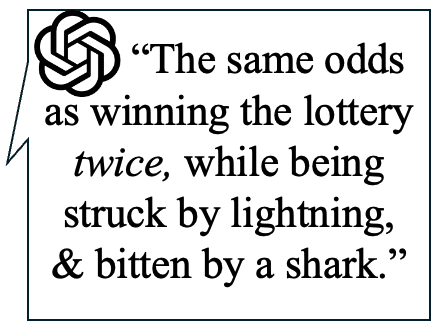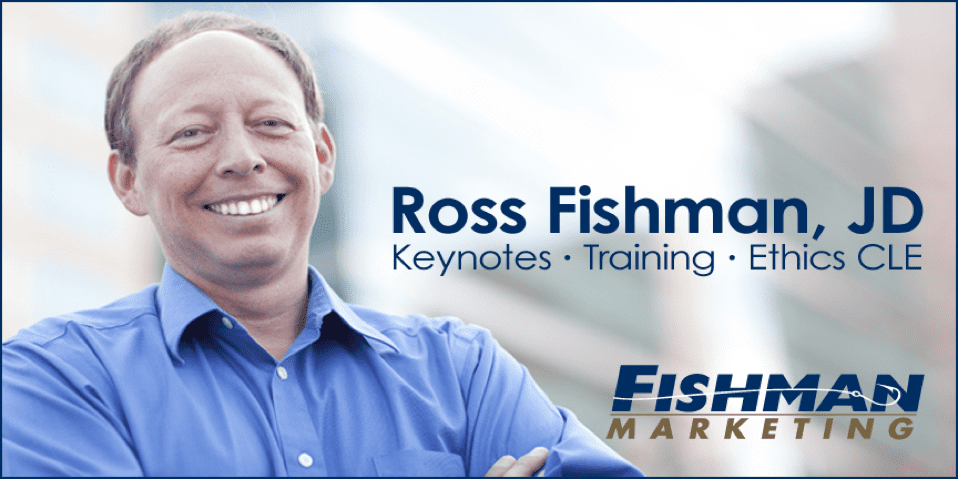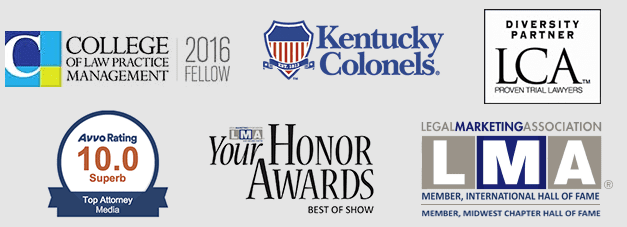“The same odds as winning the lottery twice while being struck by lightning and bitten by a shark.”
It was the craziest thing. I was doing a bit of quick research on best practices for writing congratulatory ads — those straightforward, sometimes creative messages that law firms and businesses post whena client or colleague receives an award. I did a quick Google search, clicked on a promising article, and immediately had the sinking feeling of déjà vu.
I HAD WRITTEN THIS ARTICLE.
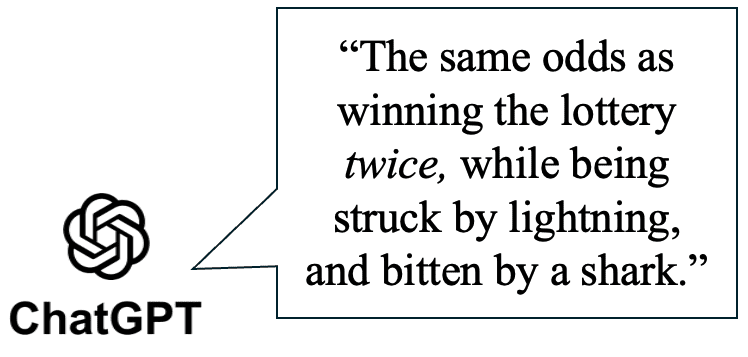
Not this exact one, of course. But in 2013, I had penned a snarky yet educational blog post analyzing a dozen congratulatory ads from a business magazine notorious for its pay-to-play honors. My piece critiqued the ads, highlighting which ones were creative and which ones looked like they were designed in PowerPoint by an intern. I rated each ad on a 1-to-10 scale and explained my reasoning in detail.
Fast forward to 2025, and here was a nearly identical blog post, right down to the structure, tone, and scoring system. Even weirder? It reviewed a 2013 issue of the magazine — despite the fact that the magazine had run a new version of this feature every year since. Coincidence? Not likely.
AI CONFIRMS: 40% COPY-PASTE JOB
I decided to run an experiment. I copied both articles — mine from 2013 and this “new” one from 2025 — and fed them into ChatGPT, asking it to compare the documents for similar language. The result? Entire paragraphs were copied verbatim. ChatGPT estimated that 40% of the new article was lifted directly from mine, with only minor superficial edits.

Just for fun, I asked ChatGPT: What are the odds this is a coincidence? The response was as blunt as it was amusing:
“Zero. The chance of this being a coincidence would be like winning the lottery twice while being struck by lightning and simultaneously bitten by a shark.”
HOW DID THIS HAPPEN?
I promptly emailed a Takedown Order to the marketing firm that had published the article, demanding an explanation. The mortified owner admitted he’d outsourced his blog writing to a third-party company that used artificial intelligence to generate content.
Curious, I looked up that company online and booked a free sales consultation. A perky 20-something salesperson cheerfully assured me that all content was carefully reviewed by humans to ensure there was no plagiarism. When I pointed out that they had, in fact, blatantly stolen my article, she became flustered and promised that the CEO would call me immediately!
Yeah, that was six weeks ago. Still waiting on his call.
THE BIGGER PROBLEM: AI AND UNINTENTIONAL PLAGIARISM
So, what actually happened here? The marketer probably asked an AI tool like ChatGPT to “Draft a blog post on ‘how to craft a congratulatory ad.’” And AI, in its infinite wisdom, found my 2013 article in its training data or from scraped sources, stitched together pieces of it, and spat it back out as “new” content.
The problem? There’s no easy way for AI users to track where content originates. AI doesn’t cite sources or provide footnotes — it simply generates text based on patterns. And that makes it incredibly risky for law firms and professionals who care about copyright and intellectual property.
Yet, I see this happening constantly in law firms across the country and around the world. I’ve trained thousands of lawyers, accountants, marketers, and other professionals in the use of ChatGPT and Generative AI (Gen AI), and oversight in this area is still inadequate.
Law firms, desperate for content and inexperienced in Gen AI, ask ChatGPT to write their articles. Some firms even outsource their content creation to marketing agencies that rely heavily on AI without realizing they’re potentially publishing plagiarized material.
HOW CAN LAW FIRMS AVOID THIS MISTAKE?
Law firms instituting AI policies need to be aware of these risks. The temptation to use AI-generated content is huge—you can produce exponentially more blog posts, website pages, and social media updates with minimal effort. But there are ways to protect yourself:
- Always check AI-generated content for plagiarism before publishing. Use a plagiarism checker or ask ChatGPT for its sources — but don’t rely on AI alone. In my experience, this isn’t foolproof. When I tested it with the stolen article, none identified my original as the source.
- Require a human editor to verify and fact-check all AI-generated content.
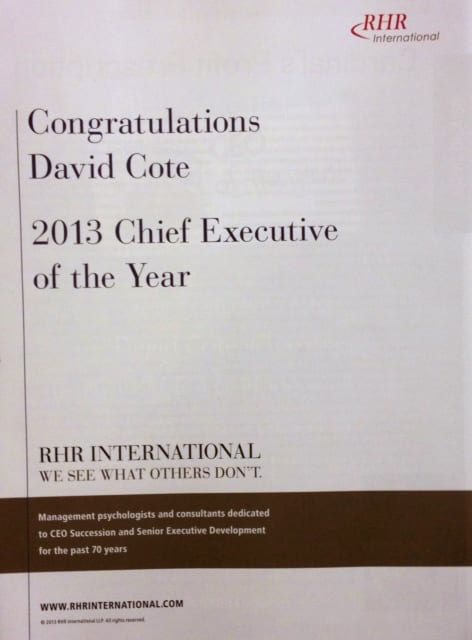
- Ensure your content is original by adding unique insights, client experiences, and legal perspectives that AI can’t fabricate.
- Train your team to recognize AI hallucinations, errors, and potential copyright issues.
- Consider using AI as a research, brainstorming, or editing tool — but not as an unchecked content generator. Start with your own material.
Generative AI tools are powerful, but they are not infallible. And in some cases, they may be stealing content — without the user even realizing it.
For a law firm, the ethical and legal consequences and embarrassment of getting caught plagiarizing someone else’s work (or violating copyright law) is pretty bad. It’s a risk not worth taking.
THE FINAL WORD
If 2.7 billion blog posts are published annually, what are the odds that you’ll stumble across someone plagiarizing your own material? (Apparently, in my case, about 100%.)
So, let this be a cautionary tale. AI is an incredible tool — but like any tool, it must be used responsibly. And when it comes to law firms, marketing, and professional content, the last thing you want is to find yourself unintentionally stealing your educational material from another expert. Your intellectual property lawyers and insurance carrier will thank you.
As for the content-generation firm that stole my original work? The CEO hasn’t responded. What do you think? Should I publicly out them? After all, the company’s entire business model seemingly depends on using AI to steal from actual human experts. Maybe it’s time to remind people that the original minds behind great content still matter.
Leave me your thoughts in the Comments.
If you’re looking for a firm retreat or training speaker on ChatGPT or Generative Artificial Intelligence? CALL ME ASAP at +1.847.921.7677! Watch my law firm speaker demo video for more information.
All graphics are (c) 2013 the respective companies.
————————
Interested in booking Ross Fishman for your retreat, marketing training, or Ethics CLE program? See rossfishman.com. Contact Ross directly at ross@fishmanmarketing.com, or 1.847.921.7677!

